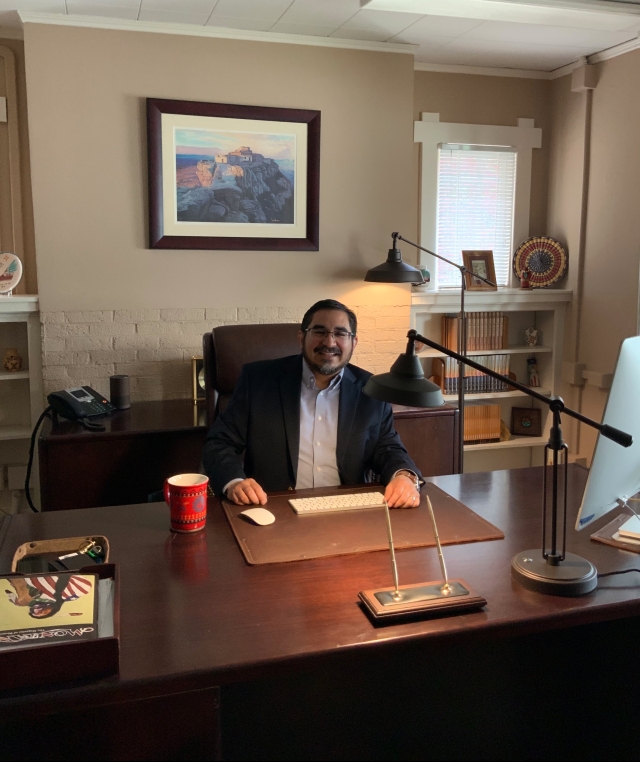[On October 8, 2018, I had the honor of introducing Charlene Teters of the Spokane Nation before she gave her keynote address on Indigenous Peoples’ Day at the University of Illinois. The following post is my introduction with citations. For a newspaper story on the event, visit The News-Gazette.]
***************
Good morning.
It is wonderful to see so many students, faculty, staff, and those from within and outside of the Urbana-Champaign community as we participate in the university’s first Indigenous Peoples’ Day celebration.
Thank you for being here.
My name is Matthew Sakiestewa Gilbert. I am the Director of the American Indian Studies Program and Professor in the Department of History
I have the privilege of introducing our keynote speaker, Charlene Teters.
Over the years, I have been called on to introduce many individuals on this campus, but this occasion is different.
Today I have the honor to introduce someone who’s life as an artist and activist has meant a great deal to the American Indian Studies Program and to the University of Illinois.
A member of the Spokane Nation of Washington, Charlene Teters is Professor of Art and Academic Dean at the Institute of American Indian Art in Santa Fe, New Mexico.
Throughout her long and distinguished career, Dean Teters has had her art featured in more than 20 major exhibitions; she’s received an honorary doctorate from Mitchell College in Connecticut; and she has served as a founding board member of the National Coalition on Racism and Sports in the Media.
Some 30 years ago, Dean Teters left the College of Santa Fe to pursue an MFA degree in the School of Art and Design at the University of Illinois.
While a student here, Dean Teters embarked on a lifelong pursuit of combating misappropriations of Native culture and the use of Native imagery for school mascots.
At the Uof I, she encountered both.
Her story and experiences on this campus have been well documented in Jay Rosenstein’s film In Whose Honor, various books, and in hundreds of newspaper articles
But for me and many other Indian people, her activist work was never truly about an image or dance taking place on a football field, but about her struggle for human dignity and Native humanity, a concept she so powerfully captures in 7 carefully chosen words:
“American Indians are human beings,” she’s been known to say, “not mascots” [Santa Fe New Mexican, Oct 10, 1997, 1].
Time does not permit me to share more about her accomplishments as an activist and artist, of which they are many.
However, there is one part of her life that I want to highlight and end my brief introductory comments with.
Artists are often asked what inspires them to create the work that they do. No doubt Dean Teters has been asked this question hundreds of times.
But even early in her career, it was clear that Dean Teters’ inspiration as an artist was deeply rooted in her American Indian community, her family, and in her identity as an indigenous woman.
“My father’s special ability to create visual feelings through color and canvas awakened a magical desire in me that has remained to this day,” Dean Teters remarked the year before she enrolled at Illinois, “Understanding of spiritual relationships came from my uncle, and from my grandmother came stories from the past and a deep appreciation for being a Native American woman.” [Rapid City Journal, April 10, 1987, V-2]
Please join me in welcoming back Dean Charlene Teters of the Spokane Nation.
Delivered by Matthew Sakiestewa Gilbert on Indigenous Peoples’ Day, University of Illinois at Urbana-Champaign, October 8, 2018






